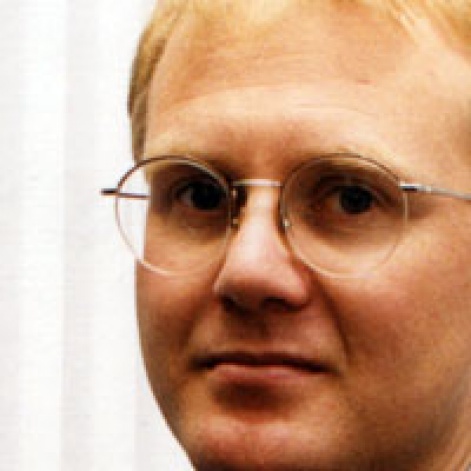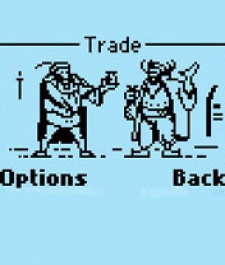It would be hard to find a better example of the public's apathy towards technology for technology's sake than the Wireless Application Protocol. While WAP phones were hyped on their ability to surf the Internet, the acronym itself demonstrated the reason for WAP's lacklustre acceptance. Certainly a Wireless Protocol, unfortunately WAP wasn't supported by any appropriate Applications. The result? Widespread wapathy.
In contrast, when NTT DoCoMo launched its proprietary i-mode technology in Japan, thousands of custom websites were available, offering the kind of time-wasting services appropriate for a device with a tiny monochrome screen. The result? 16 million mobile Internet users in Japan. And with the 68 European networks currently accounting for around 60 percent of the continent's total corporate banking debt thanks to the cost of 3G licenses, according to figures released by Motorola, mobile data services in the West clearly have to be made profitable and quickly.
One of the first groups to start providing serious wireless content has been the computer games industry. Battered by the transition between ageing game systems such as PlayStation and the delayed introduction of more powerful machines, many UK games developers have been exploring the potential of other devices, particularly ones with revenue streams attached. The infrastructure of wireless Internet makes it fundamentally a far better business proposition than its big, flashier brother, the World Wide Web. The fixed Internet is an amorphous mass of content without a billing system, while the mobile Internet is an airtime billing system waiting for content to drive usage.

One typical start-up is seven-strong London-based Morpheme. Originally launched to develop games for PlayStation and Game Boy, its founders quickly realised that WAP devices had far more potential. "We didn't think too much about the financial model," confesses Morpheme MD and games industry veteran, Matt Spall. "We banked on the people driving the hardware wanting to make money somewhere along the line."
And with analyst Durlacher predicting that there will be one billion mobile data users by 2003, Spall's back of a fag packet sum; "Take one billion users, assume one percent play games for10 minutes a day," results in some fairly outrageous numbers. Datamonitor's Wireless Gaming report supports this calculation though, putting the revenue pot for Western Europe and the US by 2003 at $1.7 billion.
Having completed a number of WAP games for publishers Virgin and Activision on a flat fee basis, the goal for companies of Morpheme's size is the opportunity to act as a wireless publisher and tap into those numbers. "Traditional games publishers can't give WAP the attention it deserves," Spall says. "What we are looking at doing is turning the tables - developing a series of products and then saying to publishers, 'We could put your game character in this title, or put your logo here.' We won't charge them. In fact we will pay them a royalty because we will have access to the distribution channel and so act as the publisher."

Predictably, control of the wireless distribution channel is already proving vital. Carriers may control the all important billing systems, but they are mischievously referred to within the industry as plumbers and with good reason. They have no experience of generating or integrating content within their infrastructure. Instead they are relying on specialists to aggregate game content and deliver a complete package. Industry behemoths such as Nokia and Motorola are in the process of rolling out their game server platforms, but it is two small UK enterprises that are currently creating the big waves.
"The crucial thing is that we looked at the value chain and built some technology which helped define how that value chain is going to work," explains Kevin Bradshaw, CEO of Fife-based mobile gaming pioneer Digital Bridges. That technology, called UNITY, is an integrated game server which hosts WAP games and monitors what games have been played by which users and thus generating billing information for the carriers.
"Managing the value chain is what it is all about," Bradshaw emphasises. "We have been absolutely steadfast with the various portals and carriers in saying, 'You will have to pay companies like us for this content', otherwise there is not going to be a sustainable mobile content industry."
The effort appears to be finally paying off. Digital Bridges currently has deals with 11 mobile networks ranging from Vodafone and France Mobile Telecom in Europe to ClearNET in Canada, Globetel in the Philippines and M1 in Singapore. Further deals in America and Brazil are in the process of being announced. A cash injection of £10 million from venture capitalists Apax Partners Funds and Argo Global Capital and a just finalised strategic partnership with US powerhouse Openwave underline the compan's global potential.

In addition to working with carriers, UNITY allows Digital Bridges to act as a middleman in the mobile value chain too, cutting revenue-sharing deals with everyone from big games publishers such as Codemasters and Rage to the small teams such as Morpheme. It also generates content through its own in-house games channel, Wirelessgames.
The UK's other perfectly formed but big-hitting start-up is Cambridge-based nGame. "We don't think that wireless Internet is a mass-market item yet but it is getting that way. I think there will be a very substantial audience this year, and we will show real revenues from the mobile market this year," predicts nGame's bullish CEO John Brimacombe.
Backed by £1.5 million in venture capital from Oxygen Capital Partners, nGame operates in a similar way to Digital Bridges, albeit with more exposure to interactive TV and web content. Its Connected Games Server technology hosts content for Orange, Carphone Warehouse's wireless portal Mviva, Yahoo and Freeserve. NGame expects to have eight more deals signed by the end of Q1, and surprisingly considering the US's perceived backwardness, already has deals with carriers Sprint and AT&T. "The American WAP market isn't as big as Britain but on the plus side WAP hasn't had the kicking it has had in Britain," explains Brimacombe. Out of nGame's total of 250,000 registered users, over half come from the States.
But behind all this technology, what is important for carriers is the user numbers that are already being generated. "We did about 12,000 hours of WAP gameplay in December and that's with not very much WAP penetration," says Kevin Bradshaw. John Brimacombe boasts bigger figures. "NGame generates 10,000 hours of play a week at the moment and it is growing strongly."
The introduction of better technology such as 'always on' GPRS connections, devices with colour screens and Java phones that allow content to be downloaded will continue to drive the mobile data market upwards. But as Brimacombe warns; "You always have to have a balance between the sizzle of tomorrow and the practicality of today. WAP is going to be the compelling platform for the next couple of years at least, so we are going to be squeezing every bit of blood we can out of it."
And this is a good lesson for the proponents of mobile technology to learn. The future is always big, better, faster and more colourful, but if there's nothing to do once you're there, the paying public may prefer to remain in the present.






















